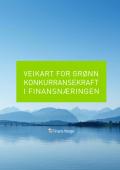This resource is also available in French.
France's Financial (Eco) System highlights experience from France in improving the integration of sustainability issues into financial decision-making.
A key area of focus has been on improving information and market analysis. Environmental, social and governance (ESG) reporting requirements were first introduced in the New Economics Regulation law of 2001, and strengthened by the 2010 ‘Grenelle II’ law and 2015 the Law on Energy Transition for Green Growth (EETG).
France has also practised direct public interventions to mobilize capital and enable new markets and expertise to develop. Public financial institutions such as the Caisse des Dépôts and Bpifrance are able to leverage regulated savings accounts and other sources of capital to provide financing in line with sustainability mandates. They committed to mobilising €15 billion towards low-carbon transition by 2017. French institutions have also played a leading role in the development of the green bonds market.

